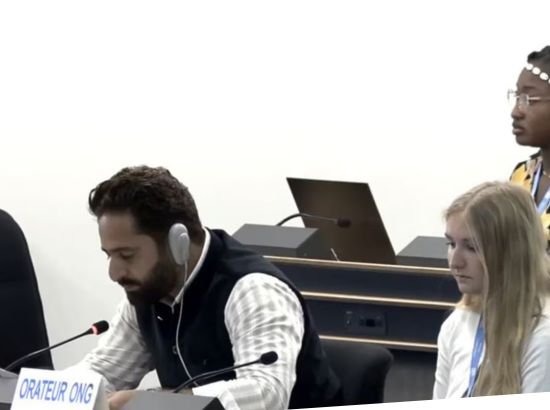
At the 60th session of the United Nations Human Rights Council (UNHRC) in Geneva, Kashmiri activist Javed Baig sharply criticized Pakistan for its role in sponsoring cross-border terrorism, pointing to the recent Pahalgam massacre as a grim example.
Baig alleged that Pakistan-backed militants were directly responsible for the killings, which targeted innocent tourists and deepened the region’s communal wounds. “The three attackers were Pakistani citizens who struck in the name of ‘Islam’ and ‘Azadi’,” he said in his address.
The Pahalgam attack claimed the lives of Hindu, Christian, and Buddhist pilgrims, along with a local Kashmiri Muslim pony operator. According to Baig, this showed Pakistan’s entrenched hatred toward non-Muslims while simultaneously betraying the very Kashmiri Muslims it claims to support.
On social media platform X, Baig reiterated his claims, stressing that cross-border terrorism is destabilizing the valley. He argued that the violence not only destroys Kashmir’s social fabric but also tarnishes the global image of Kashmiri Muslims, who have historically lived by centuries-old traditions of peace and coexistence.
Highlighting Kashmir’s cultural and spiritual importance, Baig described the valley as “the abode of Hindu sages and Muslim Sufis,” accusing Islamabad of desecrating its sanctity by turning it into a hub of violence and sectarian hatred.
“Pakistan says it cares for Kashmiri Muslims,” Baig said, “but for more than three decades it has inflicted untold suffering on the very people it claims to defend.” He urged the international community to hear the truth directly from Kashmiri Muslims, rather than through the lens of Pakistani propaganda.
Baig’s testimony adds to growing calls at the UN and beyond for global recognition of Pakistan’s role in fueling terrorism, while also underscoring the urgent need to protect Kashmir’s pluralistic heritage and its people.